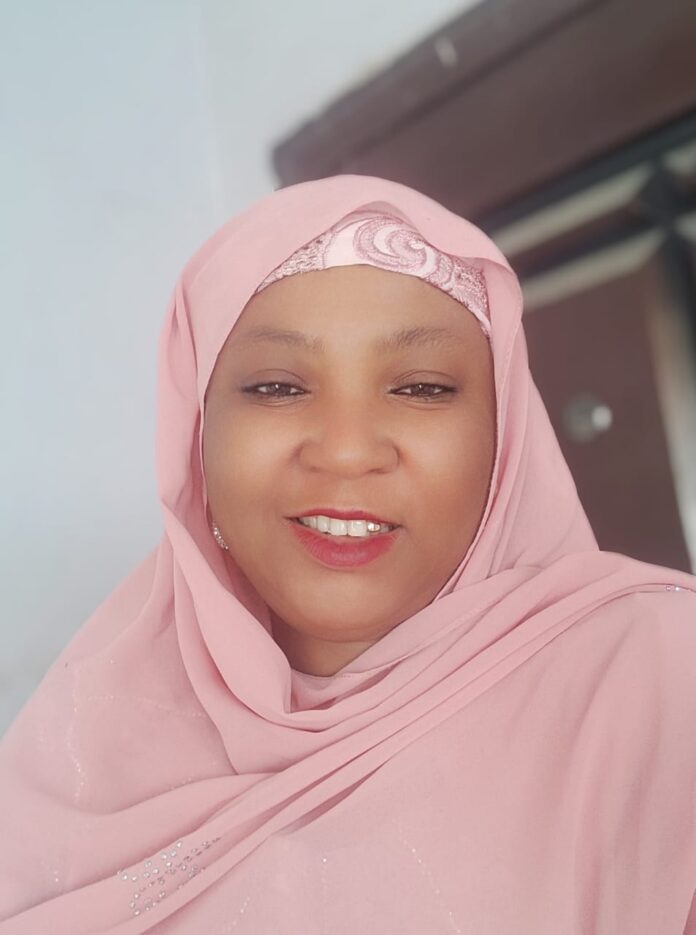No Women, No Peace: A call for transformation in conflict-prone northern Nigeria, by Dr Hauwa Mohammed Sani
The phrase “No women, no peace” has become a rallying cry for those who recognise the critical role of women in peacebuilding. Yet, this vision often feels like a distant dream in conflict-prone regions like rural Northern Nigeria. During my recent visit to communities of displaced women in March 2025, coinciding with the Ramadan period, I witnessed heartbreaking realities. Despite the challenges, I remain convinced that positive change is possible and that women hold the key to it.
My first heartbreak came from witnessing the deplorable conditions in which these women live; hunger, poverty, ignorance, and social exclusion were evident in their lives. The second heartbreak occurred when a child, who was fetching water, fell into a deep, uncovered well. I have never felt a deeper sense of helplessness. Although these women may not be able to read, write, or comprehend my work, this article represents my humble contribution to the society I belong to, with the hope that it will reach the ears and eyes of those it may concern.
As a researcher, I am currently supported by the Science for Africa (SFA) Foundation in Nairobi, Kenya, and the Carnegie Corporation through the Preparing Outstanding Social Science Investigators to Benefit Lives and Environments in Africa initiative (POSSIBLE Africa) Postdoctoral Fellowship. My research aims to go beyond portraying women as victims to spotlight their potential as active peacebuilders in Northern Nigeria.
The statistics are staggering: In the conflict-prone zones of Northern Nigeria, women and girls suffer disproportionately from conflict, displacement, and violence. They flee their homes, lose their livelihoods, and often face trauma that leaves lasting scars. During my visit, I saw this pain firsthand; the tears I shed were more than emotional; they were a testament to the suffering I witnessed.
READ ALSO: The role of multilingualism in navigating hate speech and fostering peace, by Hauwa Mohammed Sani, PhD
It is pathetic to recount that these women’s expectations have shrunk to a single plea: “May the government come to our aid.” When I inquired about their efforts toward peace, they shared that they engage in regular prayers and fasting. Yet, they feel that their tormentors are always one step ahead because they are often accompanied by clerics. Still, they seek spiritual protection and divine intervention, clinging to faith as their last refuge. Some even recounted instances where women, in acts of desperation and courage, pretended to be mentally unstable or “mad”, hoping that such displays might scare off their oppressors, which in many instances worked.
This mindset illustrates the psychological toll of prolonged violence and displacement. Over time, a person’s sense of agency may erode. Many begin to see themselves solely as victims, dependent on external rescue.

But women are not just victims of conflict, they are also agents of change. In some rural Northern Nigeria, women are organising themselves into cooperatives, advocating for their rights, and supporting one another to rebuild their communities and foster peace.
Supporting Women in Peacebuilding
How can we support these women in their quest for peace and development?
Amplify their voices: Provide platforms for storytelling, problem-sharing, and solution-finding, for example, through theatre for development, etc.
READ ALSO: ABU Best Performing Staff Award: Dr Hauwa Mohammed Sani among staff to receive honour Thursday
Build their capacity: Offer education, psychosocial support, and economic empowerment tools. Address root causes: Confront the structural issues, poverty, injustice, and exclusion that feed cycles of violence.

Healing Collective Traumas: From Erasure to Memory
Violent conflict does not just destroy homes, it scars communities. Healing collective trauma involves:
1. Acknowledgement and Recognition: Validating and recognising the suffering of affected communities.
2. Truth-telling and Documentation: Recording stories and preserving collective memory.
3. Community-Based Initiatives: Promoting healing through solidarity groups and cultural activities.
4. Education and Awareness: Raising understanding to encourage empathy and reconciliation.
Conclusion
“No women, no peace” is more than a slogan. It is a truth we must act upon. Women are essential to peacebuilding, particularly in conflict-prone regions like rural Northern Nigeria. By recognising their voices, supporting their efforts, and addressing the systemic roots of violence, we can build a future where peace is not just possible but sustainable.
Hauwa Mohammed Sani, PhD, is the Deputy Director, Institute for Development, Research &Training, Ahmadu Bello University, Zaria and can be reached at:
Email: hauwamohammedsanim@gmail.com
Follow the Neptune Prime channel on WhatsApp:
Do you have breaking news, interview request, opinion, suggestion, or want your event covered? Email us at neptuneprime2233@gmail.com





